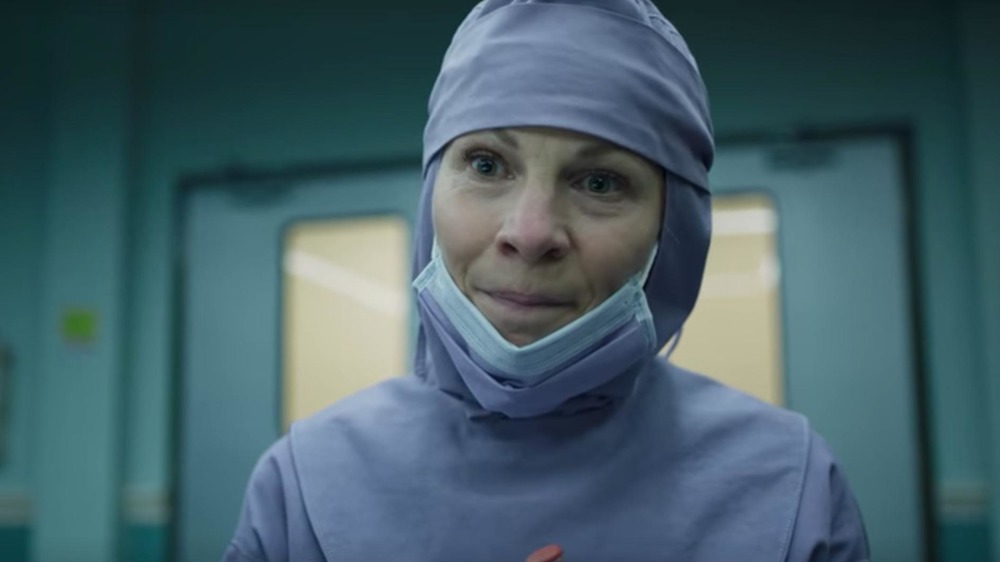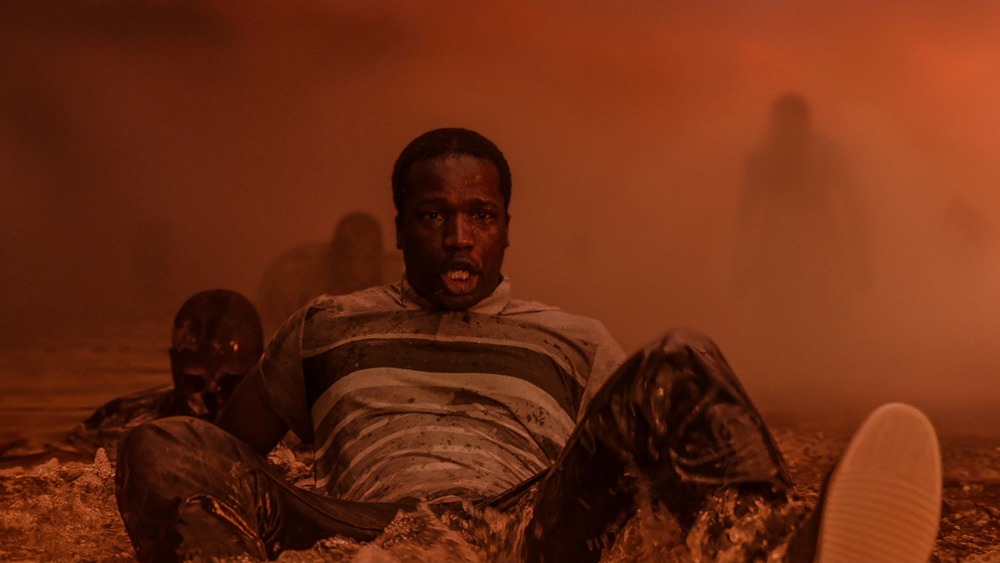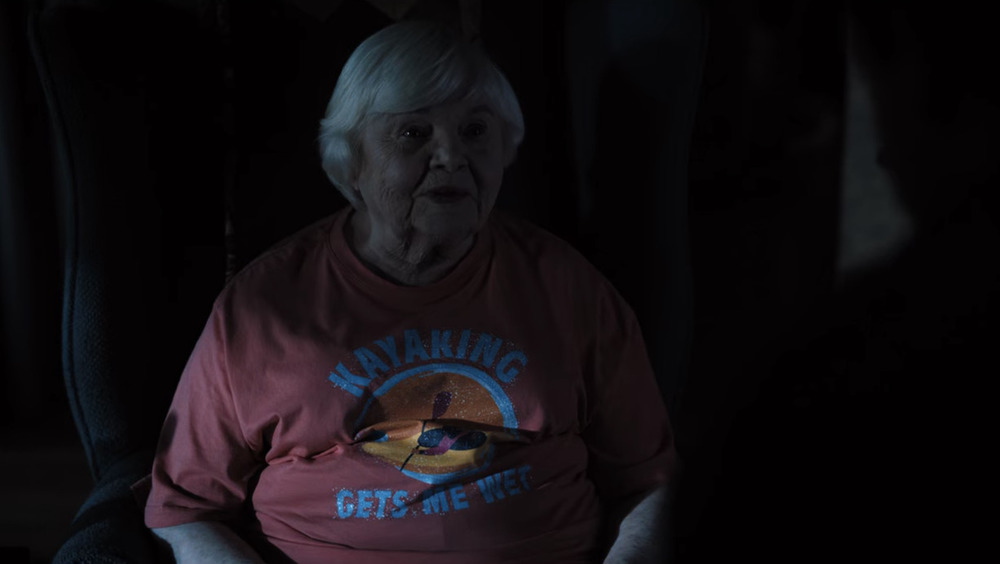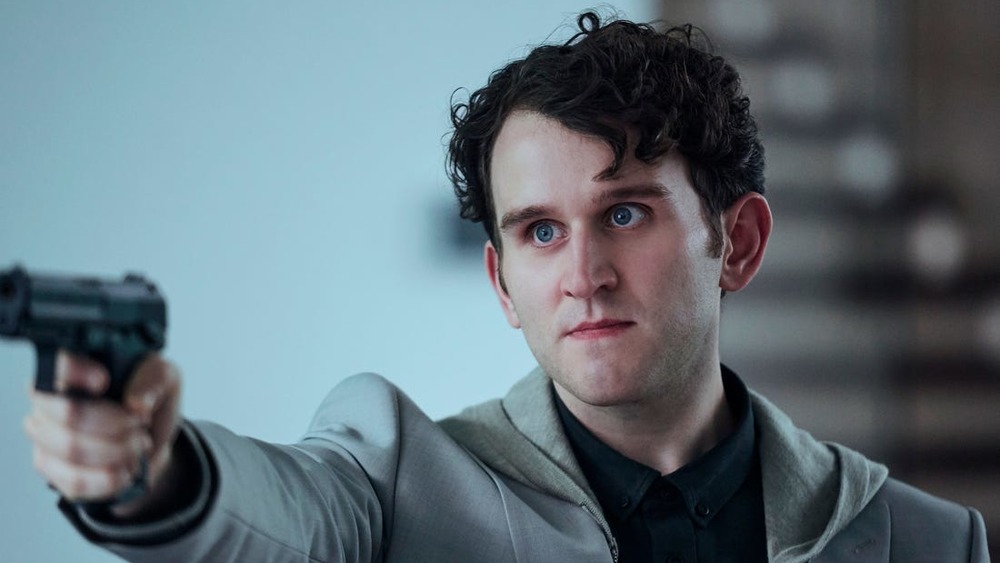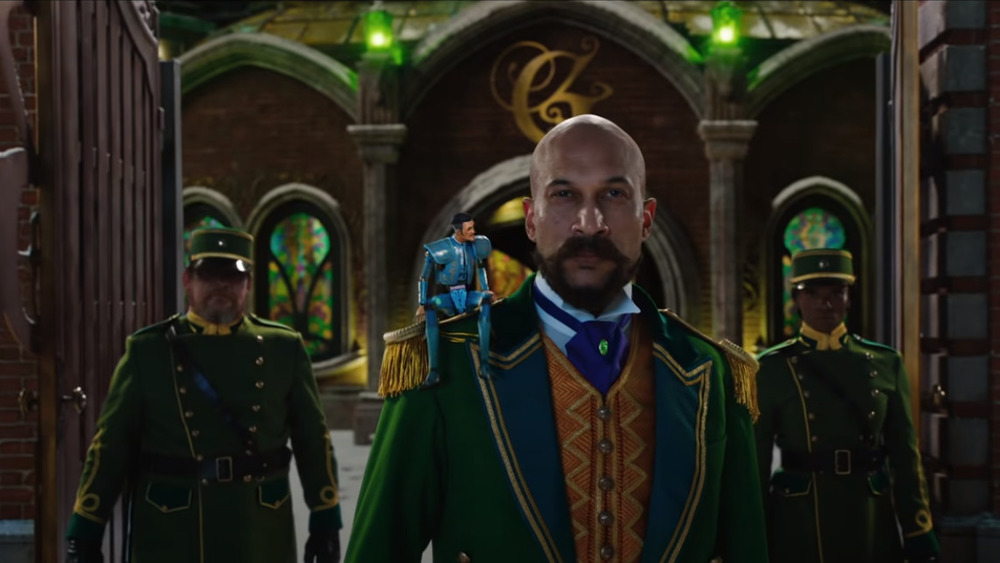Times Netflix Villains Were Actually Right
This content was paid for by Netflix and created by Looper.
We love villains for a lot of reasons. A lot of them look cool, they get many of the best lines, and very often they seem like the people in the movie who are having the most fun. But even if you're obsessed with a villain in your favorite movie, it's still usually pretty clear that they're the bad guy, doing bad things for bad reasons. Unless, of course, you're willing to look a little closer.
Because yes, villains do bad things, but sometimes they're doing bad things for very good reasons, and it's those good reasons that often make good villains even better. You can look and act and feel as despicable as the movie wants to make you, but if you're compelling enough as a villainous character you usually also have a very good point to make about whatever's going on. From guys who were just trying to help, to monsters who are actually trying to teach a lesson, these are Netflix villains who were actually right about a thing or two.
Saju in Extraction
Some films don't exist in terms of pure heroes and villains. Instead, they lay out a landscape where no one is 100 percent right, filled with gray areas that allow for intense, surprising storytelling in which every character has to keep looking over their shoulder. That's the case with Extraction, an action extravaganza that also features a character doing villainous things in the name of preserving the ones he loves.
There are certain characters in Extraction that you could easily deem good guys or bad guys, depending on what point in the film you're watching, but Saju Rav (Randeep Hooda) isn't really one of them. A former special forces operative who now works for a drug lord, Saju is tasked with a pretty straightforward assignment by his boss: Retrieve the kidnapped Ovi (Rudhraksh Jaiswal) without ever paying for the privilege. This leads Saju to do some pretty nasty stuff, including killing other people who are also trying to save the boy. However, he does these things not because he wants to, but because he's terrified of what the boy's drug lord father will do to his own family if he fails. Saju's guilt comes back to haunt him later in the film, making it all the more clear that his villainy early in Extraction was less about hurting people and more about saving the ones he loves.
Dr. Horn in Eli
The horror film Eli is a slow-burn haunted house movie that gradually morphs into something else entirely. The setup is fairly simple: Eli (Charlie Shotwell) is a young boy with severe allergic reactions to just about everything, and Dr. Isabella Horn (Lili Taylor) is hoping to fix that for him with experimental treatments at her secretive facility — which also happens to be a creepy old mansion.
Ultimately, though, Dr. Horn's intention is never to actually cure Eli, because Eli isn't really sick. He's actually the product of a dark bargain between his mother (Kelly Reilly) and Satan himself, because she wanted a son so badly she was willing to go that far. That means Eli has terrifying powers, and if he ever learns how to use them he could spell doom for humanity, so Dr. Horn and Eli's father (Max Martini) are hoping to stop the carnage before it starts. They fail, of course, and Eli and his mother manage to escape to go off and meet Eli's real Dad in what's ultimately a very fun way to close the movie. Still, though, no matter how happy we are for Eli at the end, you have to admit that Dr. Horn had a point. The kid is the literal spawn of Satan and has horrifying powers that allow him to kill with a thought. That feels like something that could send a lot of people down the road of ritual sacrifice for the greater good of humanity.
The apeth in His House
His House is one of the best new horror films of 2020, a nerve-shredding haunted house film with big ideas and high emotional stakes. And one of the reasons it works so well is that, by the time it's over, you actually understand the monster's point.
The film follows Rial (Wunmi Mosaku) and Bol (Ṣọpẹ Dìrísù), a refugee couple who are trying to make a new life for themselves in London after fleeing South Sudan. As they settle into their new home, a dark presence lurks in the walls, slowly driving Bol crazy and reminding him of the daughter they lost while escaping their homeland.
Eventually, Rial figures out what's going on. The creature is an apeth, a "night witch" that's there to remind them of a debt they owe, which the film then reveals: The "daughter" they lost was never theirs. She was a girl they stole from another family in order to make themselves look more in need of help in the midst of their escape, and her blood is on their hands. So in the end, the villain of His House is a supernatural encapsulation of the guilt and sacrifice that comes from acts of desperation, and it's there to teach Rial and Bol that the only way through that pain is to accept it and live with it.
Hubie's mom in Hubie Halloween
Adam Sandler's Hubie Halloween is the kind of film that packs a surprising amount of heart behind its silly exterior, and much of it is tied to the love various people bear for the title character, even as the world around him doesn't seem very loving.
Sandler plays Hubie Dubois, a well-meaning man who appoints himself "Halloween monitor" every year to ensure that his hometown is safe during the holiday, even as just about everyone else in town wishes he would just stay home. Hubie's concerns pay off this year, though, as seemingly random people start disappearing on Halloween night. Determined to get to the bottom of it, Hubie launches an investigation. Near the end of the film, he eventually finds that the kidnappings are all tied back to his own mother (June Squibb).
Yes, Hubie's mom has been abducting people all Halloween, and she even has plans to burn them all alive, but not because she's some kind of monster. She does is because, for decades, she's watched everyone in town pick on her only son who she loves dearly, and she's just had enough. We certainly can't condone Ms. Dubois' behavior, but the emotions behind it are both understandable — and even kind of sweet, in a twisted sort of way.
Merrick in The Old Guard
The Old Guard follows a group of mercenaries as they set out to do a job and realize they've been set up. What sets the story apart from other action movies with the same plot is that the members of this particular group are immortal, or certainly nearly-immortal. Every time you kill them, their wounds close up and they just keep going, at least until one fateful day when they finally die.
This unique talent, kept a closely guarded secret by members of the group, is eventually discovered by Steven Merrick (Harry Melling), an obnoxious pharmaceutical billionaire who decides to kidnap the Old Guard and use their bodies as part of a scientific study that he believes could stop the aging process in humans. The Old Guard spends the whole movie fighting back against Merrick because they like their privacy and they hate him, and honestly there's a lot worth hating. Merrick's methods are absolutely deplorable, but when you sit back and think about it for a moment you also realize he kind of has a point. He doesn't need to torture them to do it, but if you found out about a group of immortals whose biology could perhaps be studied to save human lives...wouldn't you want to see if you could find a way to do that?
Lemtov in Eurovision Song Contest: The Story of Fire Saga
Eurovision Song Contest: The Story of Fire Saga is a classic underdog story about two best friends — Lars (Will Ferrell) and Sigrit (Rachel McAdams) — who make their dreams come true by entering the legendary Eurovision music competition to represent their native home of Iceland. Once they get to the event, though, the duo known as Fire Saga find themselves beset on all sides by more experienced competition. Chief among their rivals is Alexander Lemtov (Dan Stevens), a sexy Russian vocalist who quickly decides to take Sigrit under his wing and offer her advice, which creates a rift in Fire Saga as Lars feels threatened by his Lemtov's talents and charms.
Though Lemtov is presented as a villain as he seemingly tries to seduce Sigrit away from Lars, Eurovision Song Contest ultimately reveals him to be a well-intentioned man who really did believe Sigrit wasn't living up to her full potential as a performer. The threat was pretty much imagined by Lars, particularly since Lemtov later reveals that he's gay and has no romantic interest in Sigrit. Plus, his advice helps Sigrit to write "Husavik," the moving closing song of Fire Saga's Eurovision run.
Gustafson in Jingle Jangle: A Christmas Journey
Jingle Jangle: A Christmas Journey tells the story of two toymakers and the disparate paths their lives take. For much of the film, the successful toymaker Gustafson (Keegan-Michael Key) is presented as the villain after, as a younger man, he stole the notebook of his former mentor Jeronicus Jangle (Forest Whitaker), leaving Jeronicus a ruined and bitter man while he collected all the glory.
But as the film goes on, it becomes clearer and clearer that Gustafson is unhappy, because he was never keen on stealing the inventions in the first place. He was manipulated by Jeronicus' living Matador toy (Ricky Martin), who wanted nothing but to escape and find independence. Gustafson's real desire, the entire time, was just to make one of his own inventions work, and if Jeronicus would have taken just a little more time to listen to him in the beginning instead of being too absorbed in his own work to help his student, all of the tragedy that unfolded might have been avoided. Gustafson did bad things, but they were bad things rooted in a fundamental need for help he never received. It's easy to see why it was all such a struggle for him.

